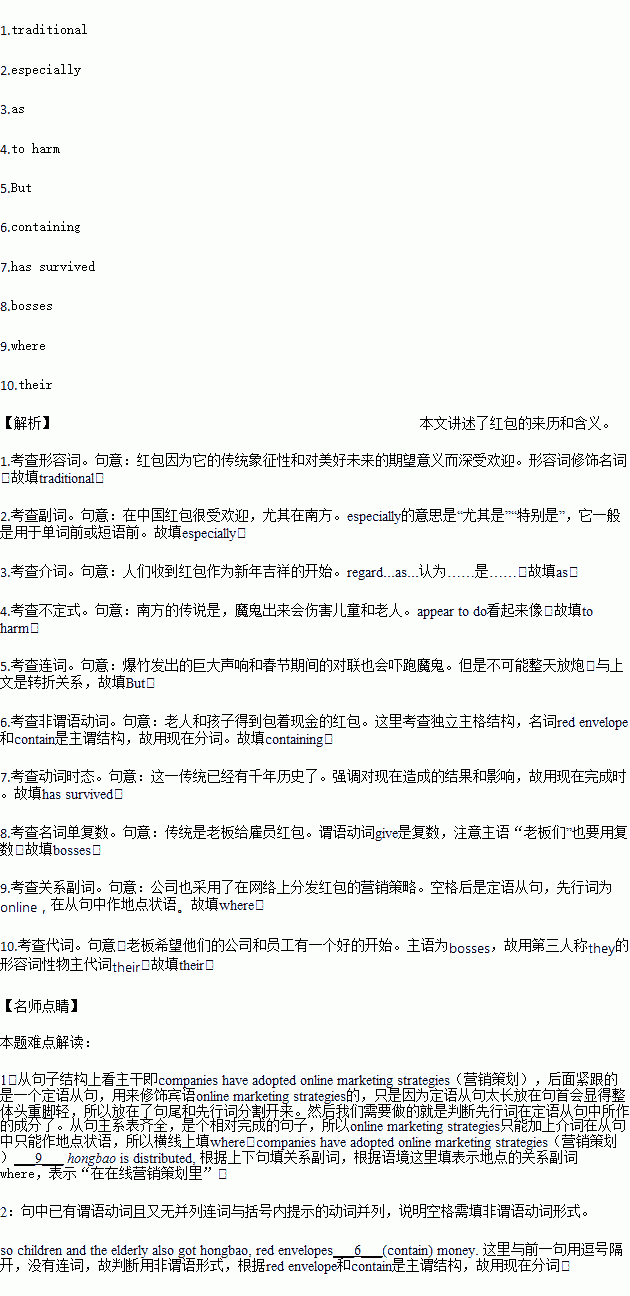题目内容
Hongbao, a red envelope with small amounts of money in, is a gift that is guaranteed to be warmly received, not only because of the cash, but also because of its 1.(tradition) symbolism and best wishes for the future. This is true throughout China, 2.(especial) in the south where people regard receiving hongbao 3. a lucky beginning of the New Year. Legend in the south has “that a devil(魔鬼)used to appear 4. (harm) children and the elderly. Loud noise would frighten the devil away, as the color red did. Firecrackers took care of the noise and during the Spring Festival couplets(对联) also helped keep him away. 5. firecrackers couldn't go off all day, so children and the elderly also got hongbao, red envelopes 6.(contain) money.
The tradition 7.(survive) thousands of years and giving hongbao to children and the elderly remains popular among Chinese people all over the world. It has also made its way into workplaces where 8.(boss) often give employees hongbao and most recently, companies have adopted online marketing strategies(营销策划)9. hongbao is distributed, hoping 10.(they) companies and staff members have a good start.
Giving hongbao at the beginning of the Lunar New Year indicates best wishes for the future.
假设你叫李华,最近在淘宝网上购买了一双鞋子,但出现了一些问题。
[写作内容]
请给网站写一封投诉信,包括以下内容:
1.投诉内容:
申购情况 | 实际情况 | |
颜色 | 黑色 | 白色 |
号码 | 37 | 38 |
到货日期 | 4月10日 | 4月20日 |
2.要求:重新邮寄或退款;
3.询问:若寄回,谁承担邮资?
____________________________________________________________________________________________
____________________________________________________________________________________________
____________________________________________________________________________________________
____________________________________________________________________________________________
____________________________________________________________________________________________
____________________________________________________________________________________________
____________________________________________________________________________________________
____________________________________________________________________________________________
____________________________________________________________________________

